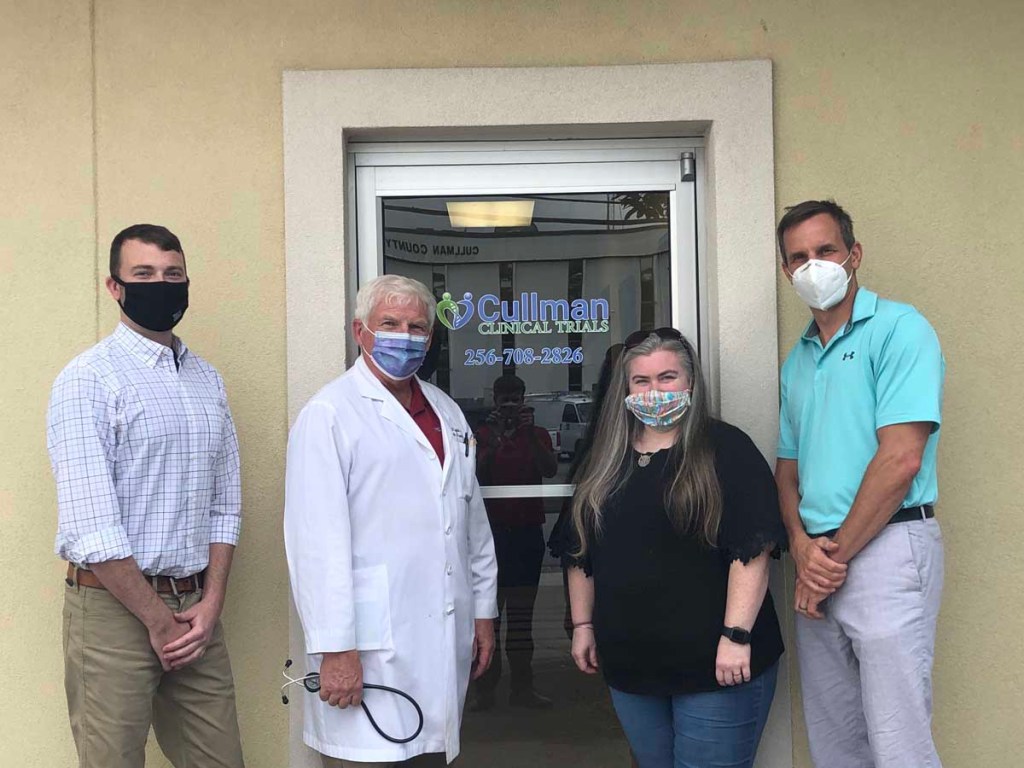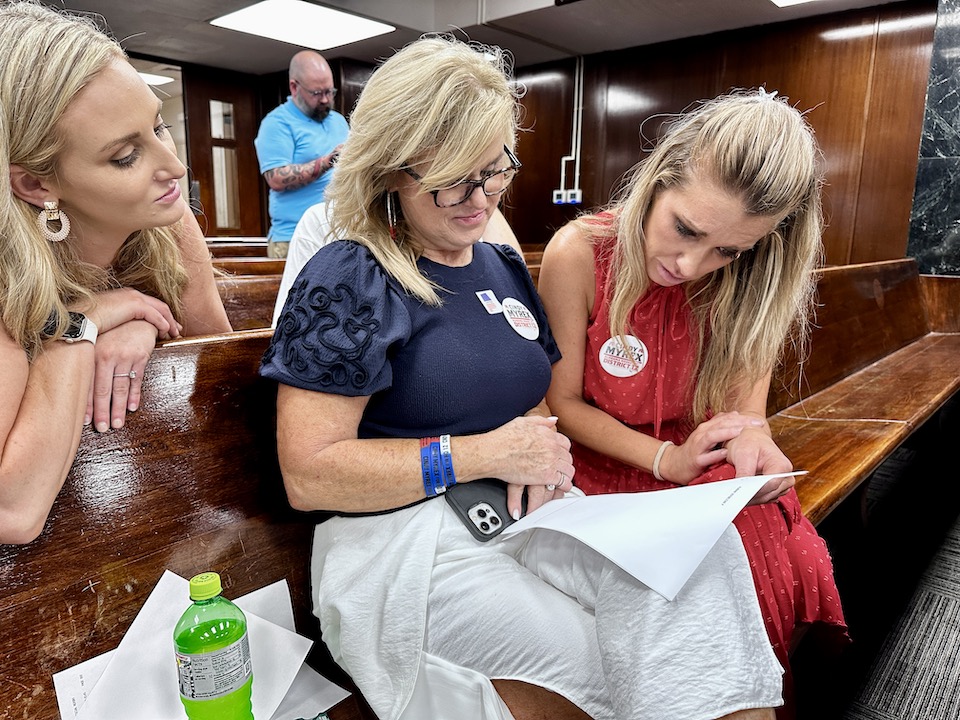Clinical trial for COVID-19 treatment to be held in Cullman
Published 5:15 am Saturday, August 29, 2020

- A team at Cullman Clinical Trials, made up of Justin Wilson, CRNP, from left, Greg Bostick, MD, Cheryl Hargrove, MA and Alex Seligson, Site Manager, are beginning trials Monday on a potential treatment for COVID-19.
As the search for a reliable treatment for COVID-19 continues around the world, a clinical research facility located in Cullman will be conducting a study to determine if a drug normally used to treat parasitic infections can be used to fight the virus.
Beginning Monday, Cullman Clinical Trials will be recruiting 800 participants for a trial of nitazoxanide and its potential to treat COVID-19.
Trending
Cullman Clinical Trials’ Alex Seligson said the research organization has previously completed studies for chronic conditions like rheumatoid arthritis and fatty liver disease, and they were recently contracted to conduct the trial on nitazoxanide.
He said trials like this typically take place in larger cities, and he was excited to be able to bring it to Cullman.
“We’re bringing cutting edge clinical research to the area,” he said.
To make sure the clinical trial is able to accurately test the ability of nitazoxanide to treat COVID-19 symptoms, patients have to begin receiving the medication within the first few days of them showing symptoms, Seligson said.
Cullman Clinical Studies is affiliated with Cullman Primary Care, and that partnership means the research team will have immediate access to patients who come in with the virus’ symptoms, he said.
Beginning Monday, people who go to Cullman Primary Care with COVID-19 symptoms and meet the trial’s criteria will be asked if they want to take part in the study to test the efficacy of the drug.
Trending
Cullman Clinical Trials is one of several centers that is conducting the trial, which will be double-blind, meaning half of the patients will receive nitazoxanide and the other half will receive a placebo, and neither the patient nor the doctors will know who received the real drug.
If they choose to take part, participants will take nitazoxanide for five days and be monitored for three weeks — which includes four doctor’s visits and keeping a journal of their symptoms — and by the end of the study, researchers will get a look at whether the drug can relieve COVID-19’s symptoms and stop the virus from progressing in the body, Seligson said.
“We’re trying to prevent hospitalizations,” he said.
Participants in the study will also receive a payment of $690 for taking part, Seligson said.
Once the trial begins on Monday, he said he expects it to finish recruiting participants by the end of September, and said the trial will likely be concluded by the end of October.
Nitazoxanide has been produced by the pharmaceutical company Romark for more than a decade, and is mainly used to treat diarrhea caused by parasitic infections that come from dirty water, but it has also shown a potential to prevent the replication of respiratory viruses in the body.
It also has very few side effects, which make it an ideal candidate to see if it can be used to treat COVID-19, Seligson said.
He said clinical trials take place in three phases: The first phase has a small group of people take the drug to see how it interacts with the body, the second phase is meant to prove that the medication actually does what it is intended to do and the third phase introduces the medication to a large group to make sure that it is safe for a diverse population.
“It’s a very long, tedious process usually,” he said.
That process can take years to organize and conduct, but possible treatments for COVID-19 are pushed by FDA and drug manufacturers and are getting the highest priority along every step of the process, Seligson said.
For Cullman Clinical Trials, it will have only been around three weeks from the day they signed the contract to conduct the trial and the day the trial begins recruiting participants, he said.
“It’s moving faster than I’ve ever seen,” he said.
Being able to conduct the trial in Cullman offers local residents an opportunity to take part in the study while also being able to take a medication that could keep them out of the hospital or even prevent their death, Seligson said.
“It’s kind of an exciting thing that we’re bringing to Cullman.”





